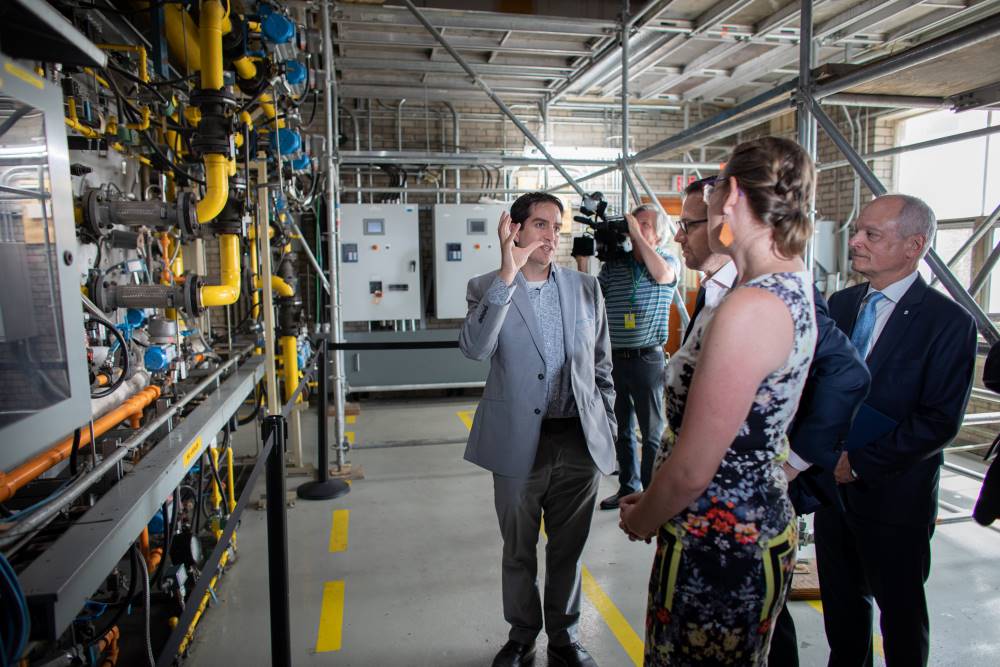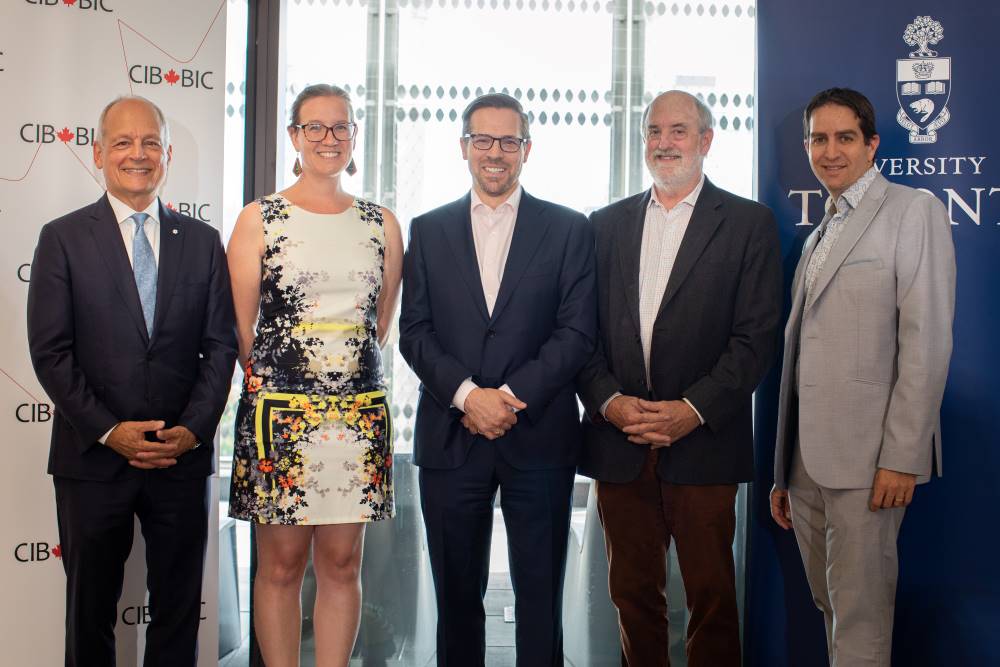The Canada Infrastructure Bank (CIB) and the University of Toronto (U of T), have signed an agreement which sees the CIB committing up to $56 million toward deep energy retrofit projects.
The CIB’s investment applies to several retrofit projects at the U of T St. George Campus located in downtown Toronto. Projects include switching one of four gas boilers to electric and installing a supplemental steam turbine in the central heating plant; deep energy retrofits of six academic buildings; establishing a local, low-carbon energy source which will supply renewable energy; and implementing green-technology solutions such as carbon capture, energy storage and waste-to-fuel.
“We are proud to partner with the University of Toronto and invest in their transition to become climate positive. This is one example of how the Canada Infrastructure Bank can collaborate with academic institutions across Canada to help them achieve their ambitious environmental goals,” said Ehren Cory, CEO, Canada Infrastructure Bank.
The CIB’s financing will help the St. George Campus become climate positive by 2050 and reduce greenhouse gas emissions (GHGs) across the Campus by approximately 50 per cent or 45,000 tonnes carbon dioxide equivalent annually.
“Our Climate Positive plan will transform the energy sources on our Campuses to ensure we can deliver on our mission of excellence in research and learning for generations to come,” said Meric Gertler, President, University of Toronto. “We are grateful to the CIB for recognizing and supporting our commitment to Canada’s net-zero targets and to harnessing the innovation of cleantech startups on our Campuses and beyond.”
Renewing existing and aged utility infrastructure at the St. George Campus will ensure future building performance supporting academic and research excellence and provides new learning opportunities.

This is the first investment with a Canadian university and the second investment under the CIB’s Building Retrofits Initiative, which seeks to achieve significant energy savings from infrastructure owned and/or managed by the public sector.
“The demand for university space that supports teaching, advanced research, collaboration with industry, and startups to scale continues to grow. The CIB’s commitment to the university’s deep energy retrofit projects will assist U of T to meet this demand while reducing our carbon footprint and helping build a green economy,” added Scott Mabury, VP, Operations and Real Estate Partnerships & Vice-Provost, Academic Operations, University of Toronto.
U of T and CIB are expected to reach financial close in Summer 2023.
“Canadians have been clear – they want their government to deliver real results in our collective fight against climate change. Energy retrofits at the University of Toronto St. George Campus will mean it will actively remove carbon from the atmosphere. This sort of innovation is exactly what we need to build a greener and more sustainable Canada,” said Karina Gould, Minister of Families, Children and Social Development.
Featured image: (L to R) Meric Gertler, president, University of Toronto; Karina Gould, Minister of Families, Children and Social Development; Ehren Cory, CEO, Canada Infrastructure Bank; Scott Mabury, vice-president, Operations & Real Estate Partnerships, University of Toronto; Ron Saporta; COO of Property Services & Sustainability, University of Toronto. (Johnny Guatto/University of Toronto)











